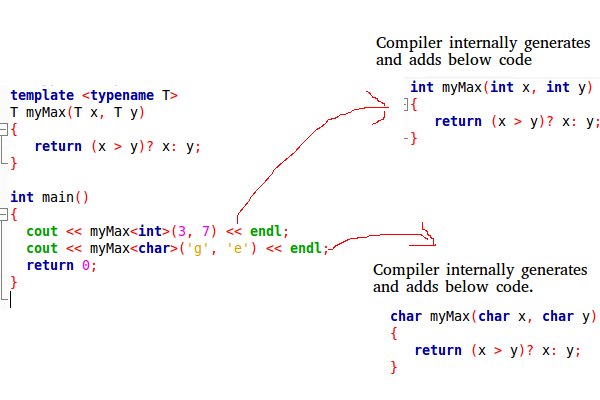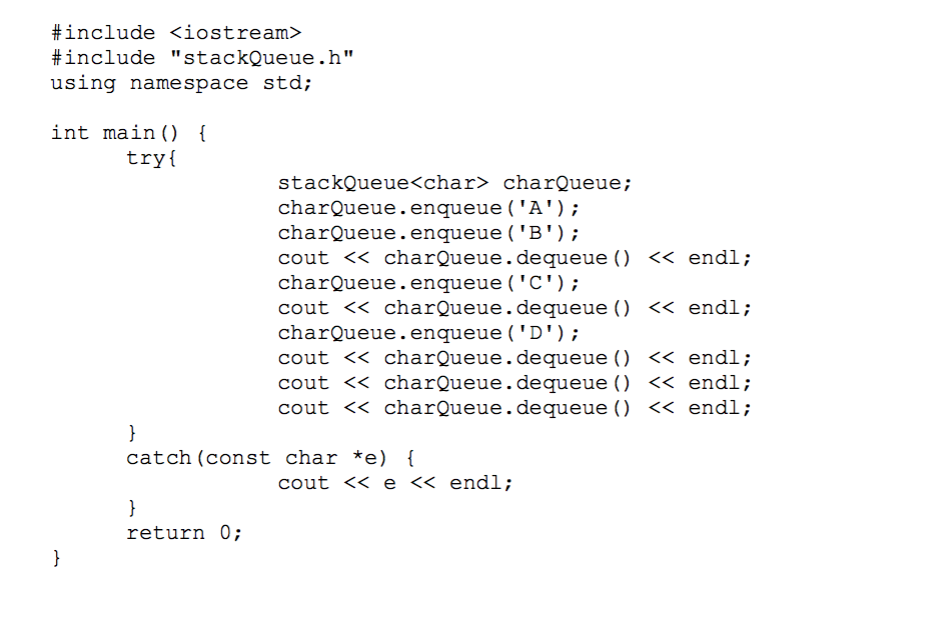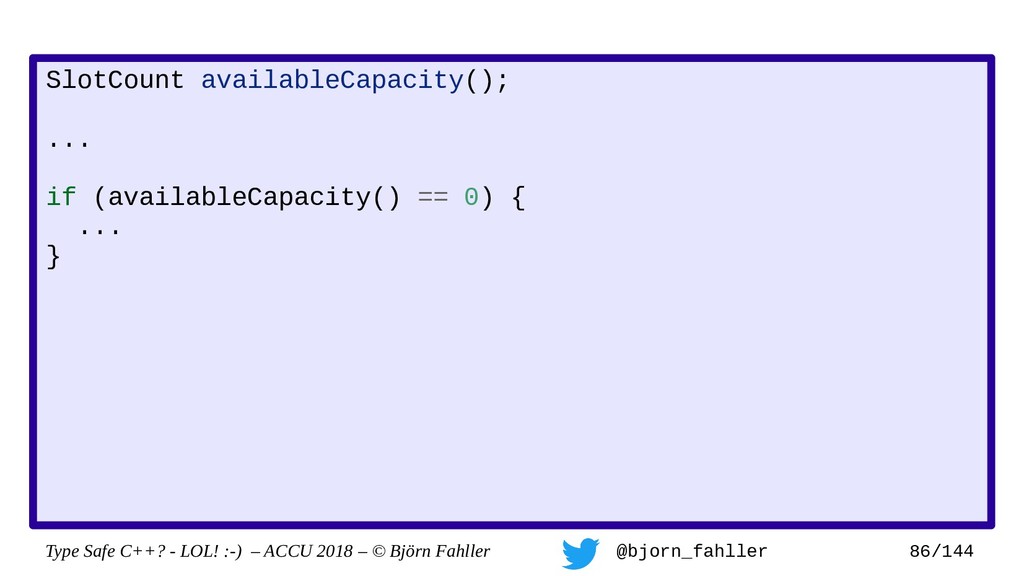Typename Template C++
Typename template c++ - This declaration may appear in block scope, class scope, or namespace scope. Thus, for example, a class. Template< typename t > std::string int_to_hex( t i ) { // ensure this function is called with a template parameter that makes sense. That means that we cannot separate the. Templates are the basis for generic programming in c++. Schmidt stl pair helper class • this template group is the basis for the map& set associative containers because it stores (potentially) heterogeneous pairs of data together • a pair binds a key (known as the first element) with an associated value (known as the second element) template <<strong>typename</strong> t, typename u. Template < class identifier > declaration; Both expressions have the same meaning and behave in exactly the same way. Templates in c++ is defined as a blueprint or formula for creating a generic class or a function. Void set(int index, const t& value) { m_array[index] = value;
But a slight addition helps catch cases where you're calling this function with template arguments that don't make sense (e.g. Is in an independent file with c++ code. C++20 introduces a new use of the auto keyword: Float) or that would result in messy compiler errors (e.g. Although templating on types, as in the examples above, is the most common form of templating in c++, it is also possible to template on values.
Templates in C++
Although templating on types, as in the examples above, is the most common form of templating in c++, it is also possible to template on values. Void set(int index, const t& value) { m_array[index] = value; C++20 introduces a new use of the auto keyword:
Solved IN C++ Pseudocode Also Needed And Time Complexity
Templates are the basis for generic programming in c++. Template< typename t > std::string int_to_hex( t i ) { // ensure this function is called with a template parameter that makes sense. } const t& get(int index) const { return m_array[index];
An introduction to C++ Templates C (Programming Language) C++
This declaration may appear in block scope, class scope, or namespace scope. } const t& get(int index) const { return m_array[index]; Generic programming is an approach to programming where generic types are used as parameters in algorithms to work for a variety of data types.in c++, a template is a straightforward yet effective tool.
C++17 class template argument deduction not working correctly · Issue
Float) or that would result in messy compiler errors (e.g. This declaration may appear in block scope, class scope, or namespace scope. } const t& get(int index) const { return m_array[index];
[C++]ラムダ式と単項+演算子 地面を見下ろす少年の足蹴にされる私
A function parameter pack is a function parameter that accepts zero or more function arguments. The c++ stl douglas c. } const t& get(int index) const { return m_array[index];
How to make a map of variant in C++
Template <<strong>typename</strong> t> t functionname(t parameter1, t parameter2,.) { // code } in the above code, t is a template argument that accepts different data types (int, float, etc.), and typename is a keyword. Although templating on types, as in the examples above, is the most common form of templating in c++, it is also possible to template on values. A template with at least one parameter pack is called a variadic template.
Type Safe C++? LOL! ) Speaker Deck
Schmidt stl pair helper class • this template group is the basis for the map& set associative containers because it stores (potentially) heterogeneous pairs of data together • a pair binds a key (known as the first element) with an associated value (known as the second element) template <<strong>typename</strong> t, typename u. But a slight addition helps catch cases where you're calling this function with template arguments that don't make sense (e.g. Generic programming is an approach to programming where generic types are used as parameters in algorithms to work for a variety of data types.in c++, a template is a straightforward yet effective tool.
How to load a TIFF image like a graph in C++ BOOST Stack Overflow
A function parameter pack is a function parameter that accepts zero or more function arguments. Templates in c++ is defined as a blueprint or formula for creating a generic class or a function. Void set(int index, const t& value) { m_array[index] = value;
Thus, for example, a class. Template < typename identifier > declaration; But a slight addition helps catch cases where you're calling this function with template arguments that don't make sense (e.g. Is in an independent file with c++ code. Both expressions have the same meaning and behave in exactly the same way. Although templating on types, as in the examples above, is the most common form of templating in c++, it is also possible to template on values. Float) or that would result in messy compiler errors (e.g. Template <<strong>typename</strong> t> class storage8 { private: A function template starts with the keyword template followed by template parameter(s) inside <> which is followed by the function definition. Generic programming is an approach to programming where generic types are used as parameters in algorithms to work for a variety of data types.in c++, a template is a straightforward yet effective tool.
This declaration may appear in block scope, class scope, or namespace scope. A template with at least one parameter pack is called a variadic template. Template< typename t > std::string int_to_hex( t i ) { // ensure this function is called with a template parameter that makes sense. Templates in c++ is defined as a blueprint or formula for creating a generic class or a function. The c++ stl douglas c. When the auto keyword is used as a parameter type in a normal function, the compiler will automatically convert the function into a function template with each auto parameter becoming an independent template type parameter. Void set(int index, const t& value) { m_array[index] = value; C++20 introduces a new use of the auto keyword: The implementation (definition) of a template class or function must be in the same file as its declaration. Template<<strong>typename</strong> t, template<<strong>typename</strong>, int> class arr> class myclass2 { t t;
Template <<strong>typename</strong> t> t functionname(t parameter1, t parameter2,.) { // code } in the above code, t is a template argument that accepts different data types (int, float, etc.), and typename is a keyword. This method for creating a function. There is no difference between a type alias declaration and typedef declaration. A function parameter pack is a function parameter that accepts zero or more function arguments. Templates are the basis for generic programming in c++. That means that we cannot separate the. Schmidt stl pair helper class • this template group is the basis for the map& set associative containers because it stores (potentially) heterogeneous pairs of data together • a pair binds a key (known as the first element) with an associated value (known as the second element) template <<strong>typename</strong> t, typename u. Template < class identifier > declaration; } const t& get(int index) const { return m_array[index];






